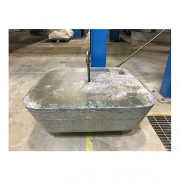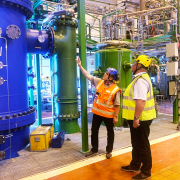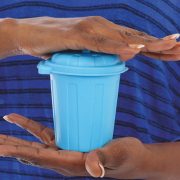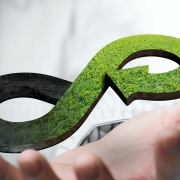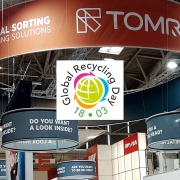New Project to Develop a Recycling Solution for Acrylic Glass
The acrylic glass recycling company Pekutherm Kunststoffe GmbH – together with Polysecure GmbH, Pforzheim University of Applied Sciences and an acrylic glass supplier – is developing an innovative recycling solution to be able to recognize high-quality transparent plastics and recycle them according to their specification.
The Deutsche Bundesstiftung Umwelt (DBU) is funding the approach with nearly 250,000 Euro. The PACE project („PMMA in the Circular Economy“) involves the development of a consistent recycling concept for used acrylic glass within two years, of which only 10 percent is currently recycled throughout Germany. The starting point is foil- and sheet-shaped PMMA semi-finished products from both post-industrial and post-consumer sources. In addition to the systematic testing of detection methods and the visible marking of semi-finished products, the project is pursuing an approach using fluorescent markers. The inorganic fluorescent markers are added to acrylic glass products as identification in ppm concentrations and enable material identification in the manufacturing, use and after-use phases. Within the project‘s scope, among other things, a mobile detector is to be developed and tested, with which large, plate-shaped semi-finished products in particular can be reliably identified prior to shredding.
For a convincing circular economy solution for acrylic glass, different cross-linked PMMA grades have to be recognized, and other clear polymers such as polycarbonate (PC), polystyrene (PS), styrene copolymers or PET have to be separated. During the pandemic, acrylic glass was used for hygiene screens at counters or in waiting areas. The material PMMA is also important for construction, the automotive or interior design sectors and for the construction of trade fairs or lighting elements. The European semi-finished products market for acrylic glass amounted to around 230,000 tons in 2020. Acrylic glass enables long service lives in numerous applications, some with very high optical requirements. For this reason, the highest purity requirements must be met for the recyclates used in order to ensure a functioning circular economy.
www.pekutherm.de/en/
www.polysecure.eu/en/
www.hs-pforzheim.de/en/
(Published in GLOBAL RECYCLING Magazine 1/2023, Page 39)



